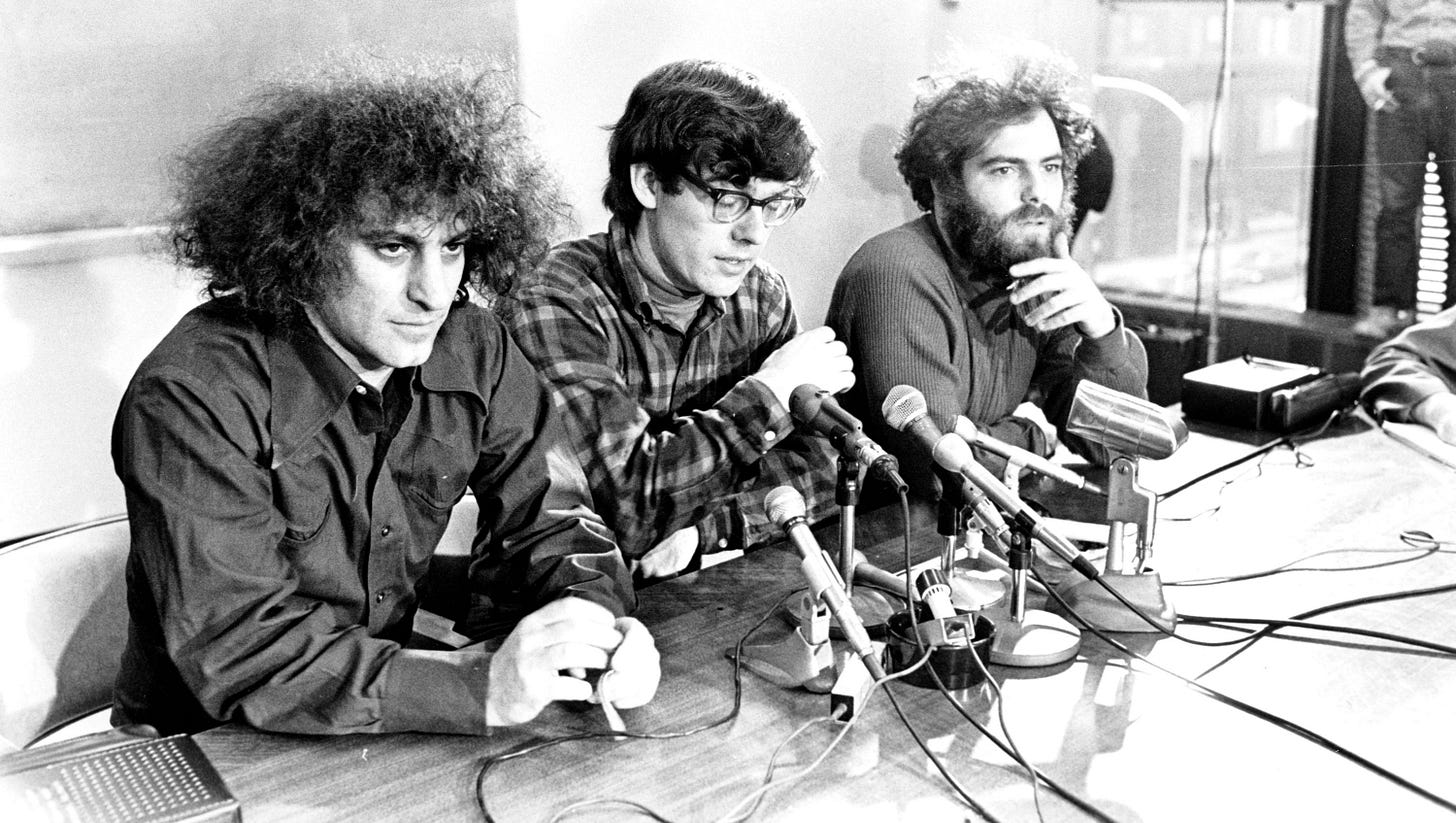The Youth International Party
The Youth International Party emerged as a highly influential counterculture movement that played a significant role in the American political and social landscape of the late 1960s and early 1970s.
The Youth International Party, often referred to as the Yippies, emerged as a highly influential counterculture movement that played a significant role in the American political and social landscape of the late 1960s and early 1970s. Founded in 1967 by Abbie Hoffman, Jerry Rubin, Paul Krassner, and others, the Yippies combined radical political activism with theatrical and sometimes humorous protest techniques. They sought to blend the cultural rebellion of the 1960s with more direct political action, advocating for changes in the U.S. government's policies, particularly concerning the Vietnam War, civil rights, and freedoms of speech and expression.
Formation and Philosophy
The Yippies were distinguished from other movements of the time by their approach to protest. They believed in the power of guerrilla theater and spectacle, using humor and absurdity as tools for political critique. The name "Youth International Party" itself was a play on the seriousness of traditional political organizations, and their manifesto, penned by Abbie Hoffman, outlined a vision for a more liberated, anarchic form of society. They did not see themselves as a traditional political party seeking power through elections but rather as a movement aiming to disrupt the status quo and inspire young people to engage in political activism.
Notable Actions
One of the Yippies' most famous protests took place at the 1968 Democratic National Convention in Chicago. They announced their intention to nominate a pig ("Pigasus the Immortal") as a candidate for President to mock the political process and draw attention to their cause. The event turned violent when police confronted the demonstrators, leading to a week of riots. The national attention from this event catapulted the Yippies and their leaders into the spotlight.
In addition to their political protests, the Yippies were involved in promoting and organizing cultural events that reflected their vision of a free society. They were instrumental in the organization of the 1969 Woodstock music festival, which became a symbol of the counterculture era.
Legal Battles and Legacy
Many Yippie leaders, including Hoffman and Rubin, were arrested during their protests. The most notable legal battle involving the Yippies was the trial of the Chicago Seven, where Hoffman, Rubin, and five others were charged with conspiracy and inciting to riot because of their roles in the 1968 Democratic National Convention protests. The trial was highly publicized and became a symbol of the conflict between the U.S. government and the counterculture movement.
The influence of the Yippies waned in the 1970s as the Vietnam War ended and the political and cultural climate changed. However, their legacy lives on in the tactics of modern protest movements, which often use humor, spectacle, and media savvy to draw attention to their causes.
The Yippies' blend of political activism, cultural rebellion, and theatrical protest techniques marked a unique moment in American history. Their actions and philosophy continue to be a point of reference for those studying the intersections of politics, culture, and protest in the late 20th century.
